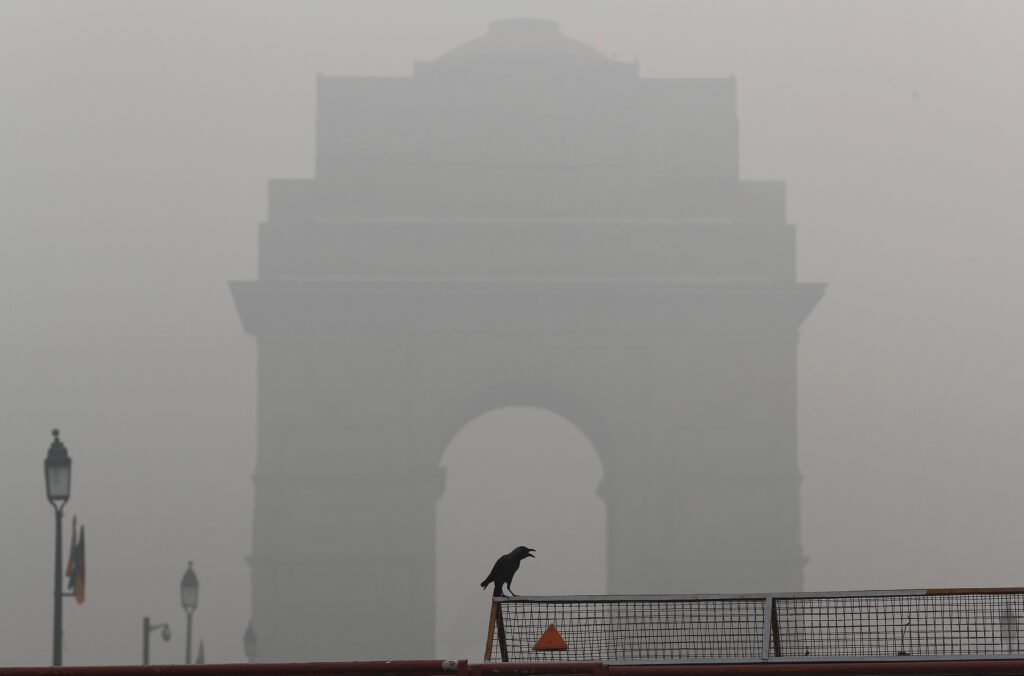Asthmatic Players Skip Practice, Bangladesh Coach Says Delhi Air ‘Not Ideal’
In the midst of the hustle and bustle of the cricketing world, a concerning issue has surfaced in the lead-up to the World Cup clash between Bangladesh and Sri Lanka. While cricket enthusiasts eagerly await this epic encounter, the spotlight has unexpectedly shifted to a different arena: the air quality in smog-shrouded New Delhi. As both teams brace themselves for the forthcoming match, the air quality has become a significant talking point, with particular attention to how it’s affecting asthmatic players and the strategies both teams are employing to mitigate these challenges.
Alarming Air Quality in Delhi
Delhi’s air quality index (AQI) has raised red flags, registering an alarming 460 on the scale. An AQI of 0-50 is considered ‘good,’ while anything between 400-500 is deemed hazardous to even healthy individuals and particularly perilous for those with preexisting medical conditions.
Sri Lankan Players Take Precautions
Chandika Hathurusinghe, the coach of the Sri Lankan cricket team, expressed deep concern for his players’ well-being. He highlighted the measures they are taking to safeguard their athletes in the face of this environmental challenge.
“Our doctor is keeping a close eye on the players,” Hathurusinghe stated. “Some of the players didn’t turn up for practice as they are asthmatic, so they stayed indoors.”
The situation has led to a careful reevaluation of their practice routines. Hathurusinghe explained, “Even for practice, we’re very conscious. We train what we have to train, and then go back into the dressing room. They don’t spend time outdoors unless they’re bowling or batting.”
Bangladesh’s Response
The Bangladesh cricket team, despite facing a different set of challenges due to the air quality, remains resilient. The coach emphasized that their team selection would primarily depend on the playing conditions and the strengths of their opposition. Despite the less-than-ideal air quality, they are determined to give their best in the upcoming match.

International Cricket Council’s Involvement
The International Cricket Council (ICC), the governing body of international cricket, has also weighed in on the situation. While acknowledging that the conditions are less than ideal, the ICC stressed that both teams have little choice but to play under the circumstances.
“It’s not ideal, but we have no choice. We have to play in the condition in front of us,” Hathurusinghe emphasized.
A Challenge for Fast Bowlers
The challenging air quality poses a particularly difficult situation for fast bowlers, whose performance could be hampered by the polluted air. However, Hathurusinghe denied that this would significantly influence Bangladesh’s team combination. He reiterated that the final decisions regarding team composition would be based on the match’s conditions and the strengths and weaknesses of the opposition.
Precautionary Measures – Masks and Equipment
As a precautionary measure, most of the Sri Lankan players were seen wearing masks upon their arrival at the Arun Jaitley Stadium. This approach underlines the seriousness with which the teams are taking the air quality issue.
Kusal Mendis, the Sri Lankan captain, dispelled media reports that the team had requested the ICC to shift the match to a different venue. He explained, “We didn’t make a request to change… We just asked them what’s the plan.”
The ICC has taken steps to address the situation by installing specialized equipment to monitor air quality, providing expert oversight, and ensuring player safety. “They have already informed us that they are planning to go ahead. So we will do exactly what the ICC actually tells us to do,” Mendis emphasized.
Final Thoughts
As the cricketing world eagerly awaits the clash between Bangladesh and Sri Lanka, it’s evident that the air quality in Delhi has become an unexpected challenge for both teams. Despite the less-than-ideal conditions, the players and teams are committed to giving their best in this crucial encounter.
The situation underscores the importance of considering environmental factors in sports events, not just the traditional elements such as pitch conditions and weather. Both teams are taking precautions to protect their athletes and ensure the match proceeds safely.
While the ideal conditions might be out of reach, the spirit of cricket prevails, and the teams are determined to provide an exciting and memorable match for fans worldwide.